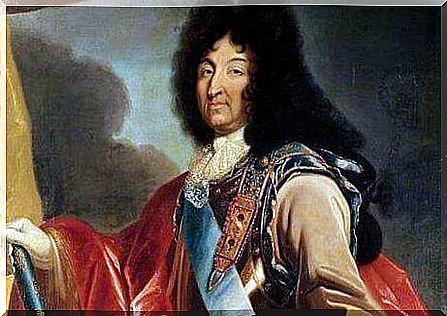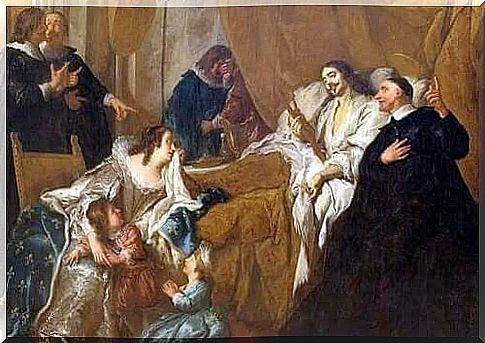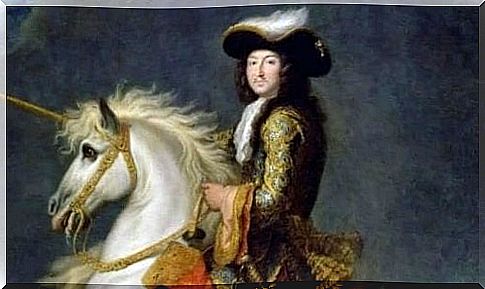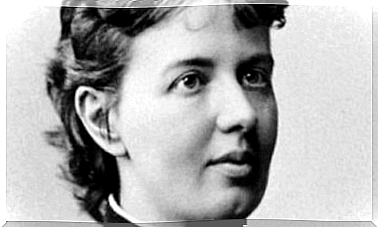Louis XIV: A Biography Of The Sun King

Louis XIV was the son of King Louis XIII of France and his wife, Queen Anna of Austria. Louis XIII and Anna tried to have children for years before Louis XIV was finally born on May 14, 1643.
He was baptized as Louis-Dieudonné. His long-awaited arrival was considered a true blessing, hence his name, which means ‘Gift of God’ in French. Louis XIV grew up believing that his existence was a divine gift.
This belief became particularly relevant during his adult years, when a young Louis XIV became convinced that anyone who disobeyed the king was disobeying God. He believed, like many people around him, that his commands were divine commands.
Over the years, Louis XIV has been nicknamed the ‘Sun King’. He is undoubtedly one of the most iconic kings in human history.
What was the secret behind his long reign? Has his belief in his own divine origin influenced his way of ruling? In this article we tell you a little more about this French king, who was a perfect example of the absolute monarchy.

Louis XIV had a difficult childhood
When Louis XIV was only four years old, he already became king of France. According to the laws in force in France at the time, the young Louis was from then on the owner and lord of the bodies and property of 19 million individuals.
Louis XIV was clearly too young at the time to actually sit on the throne, so it was his mother, Anna of Austria, who took on this task. She appointed Cardinal Jules Mazarin as prime minister to oversee government decisions until Louis XIV came of age.
His teachers until then did their best to educate him about politics and economics. When he was a boy, he had an accident where he nearly drowned. People blamed his mother for this, who would not have been observant enough.
Louis XIV undoubtedly had to endure a fair amount of setbacks from an early age. It’s no surprise then that there were plenty of people who didn’t want Louis XIV to grow up.
La Fronde
When Louis XIV was nine years old, the nobles of the French parliament rebelled against the throne and Prime Minister Mazarin. This was the beginning of a long civil war known as ‘la Fronde’ (the uprising). During this period of his life, Louis XIV suffered from humiliation, poverty, fear, cold and hunger.
This war shaped the monarch’s character and changed his way of thinking and acting. Louis XIV was never able to forgive Paris, the nobles, or the people who supported them.
In the end, it was Mazarin who won the conflict, after which he initiated an economic and administrative reform that Louis XIV would complete during his reign. Lodewijk had great admiration for the cardinal and even allowed him to keep his position as prime minister when he grew old enough to wear the crown.
Lodewijk was trained as a diplomat, but also as a soldier. He perfectly understood the political inner workings of his country. Therefore, Louis XIV agreed to marry the daughter of the king of Spain instead of the woman he loved. He was married off in order to preserve the peace between France and Spain and to increase French control in Europe.

The beginning of his reign: France after Mazarin
After Mazarin’s death, Louis XIV decided to assume all government responsibilities himself. This decision surprised some of his advisors and all the nobles because the king was traditionally a more social figure.
However, Louis, sure of his divine right, did everything he could to defend his position as the absolute power in France. He thus established a regime that would last for centuries in several parts of Europe.
For 54 years, Louis XIV devoted ten hours a day to ruling his kingdom. No detail was too small. He delegated nothing, he controlled everything. The king knew that the greatest weakness of his kingdom was the nobility. The nobles could easily turn against him as they did during la Fronde.
To prevent this , Louis XIV arranged for all the nobles in the country to live in Versailles, his immense palace outside the city. They were all constantly trying to get the king on their side.
This arrangement made it a lot easier for King Louis XIV to maintain control. He had a large circle of spies who kept him informed of all the plans the nobility had against the throne.
Versailles was the epitome of centralized government. It was also a beacon of culture and learning opportunities for decades.
Louis XIV: soldier and benefactor
Louis XIV was both a supporter and a benefactor of the arts. He was the patron of great literary figures such as Molière, the influential playwright. He also created the Académie des Inscriptions et Belles-Lettres and the Académie Royale de Musique. He was also the principal benefactor of the Paris Observatory.
He was, of course, also the patron and benefactor of many of France’s most important artists. These artists sang, acted and painted in Versailles.
The Gardens of Versailles are therefore arguably one of the greatest open-air works of art in all of France. Despite the grandeur of the king and his palace, the monarchy became increasingly isolated from people and art. Consequently, he was forced to live in the palace.
France was an independent nation, but the king was still a soldier at heart. At some point he decided to invade the Netherlands and reclaim French territory.
However, this was a failed mission. Shortly afterwards, France went into battle against the Great Alliance, a group made up of Spain, Britain and the Holy Roman Empire.
Although France did not lose too much ground as a result of the war, it did have to endure a lot economically. The banks of the country were completely milked out. Because of this, Louis XIV went from being king of a wealthy nation to being king of a weak and miserable country ravaged by poverty.
The end
The Sun King died a few days after his 77th birthday. It was very unusual at the time to live that long. He was one of the longest-living kings of his time. After his death, it was the last son of the Duke of Burgundy, who was only five years old at the time, who took over the throne.
Louis XIV was a great king and people still admire him for his contributions to art and culture. However, he also turned out to be a living incarnation of absolutism. He believed strongly in the old idea that your destiny and nature are determined from the moment you are born.
Louis XIV brought splendor and wealth to his country, but he also destroyed it. In any case, the Sun King was and remains an iconic figure in the history of France.









